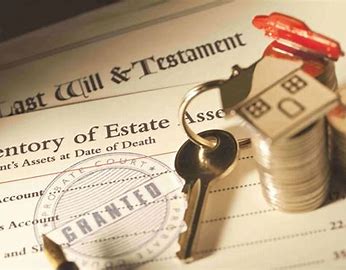TTF Tackles the Money Monster under your bed: Investment and Inheritance
This week's blog in the 'Money Monsters' series looks at the questions that can arise from inheriting a property from a loved one.
HMRCASSETSTAX COMPLIANCEINHERITANCE
The Tax Faculty
11/15/20245 min read


"I've recently come into an inheritance—the full ownership of my father's house—and now find myself at a bit of a crossroads. I have a solid, comfortable income from my teaching career, around £45,000 a year, so I can handle my bills and mortgage and even enjoy a few luxuries here and there. But this property brings new choices, and frankly, I’m not sure what makes the most sense financially or emotionally.
One option, of course, is to rent it out. There's definitely something appealing about a steady stream of rental income, which could help build a bit of an early retirement fund. But, to be honest, I'm struggling with the idea of having someone else living in my dad's home. It feels like it might be strange seeing others using his rooms, his space, where so many memories live. Plus, being a landlord isn’t something I know much about, and I wonder if the hassle would outweigh the financial benefit.
The other path, which feels a bit simpler, would be to sell the property. But even here, I’m not quite sure of the best move. Should I use the proceeds to pay off my own mortgage and free myself from that monthly obligation? It would give me more breathing room and could allow for some extra savings towards the future. Or maybe I should consider buying a smaller property that I could rent out—a rental investment that’s a little more detached from those personal memories.
I'm not looking to make huge sums of money here, just something manageable that will help me feel more financially secure as I plan for early retirement. I suppose I’m at a point where I could really use some advice on how to make the most of this unexpected inheritance."


It sounds like you have a few promising options, each with their own advantages and potential challenges. An inherited home comes with increased financial and legal responsibilities and your personal circumstances and financial stability may determine whether you should rent and get landlord insurance coverage or sell the house.
You may even consider moving into the property if you can afford it. Here’s a brief overview of each, with some important tax and financial considerations to help guide your decision.
1. Renting Out the Inherited Property
• Positives: Rental income could provide a steady revenue stream, which can support your lifestyle or build up an early retirement fund. Renting may also allow you to retain ownership of the property, which could appreciate in value over time.
• Pitfalls: As a new landlord, you’d have responsibilities, such as property maintenance, finding reliable tenants, and managing any issues that arise. Tax-wise, rental income is subject to income tax, which would add to your existing income, potentially pushing you into a higher tax bracket. Additionally, you may need to budget for property expenses, insurance, and any required compliance with local landlord regulations.
Further Considerations:
1) If you don't mind being responsible for the house or making decisions such as what the rental price should be or who your target tenants are then renting might be the choice for you.
2) If the property is located in a desirable area with the potential to demand a high rental income or where property prices are rising then holding onto the property and renting it out may be a good idea.
3) If you would prefer to have a steady stream of income rather than a lump sum, renting might be more suitable .
4) Renting may be the best option if the property is in rentable condition and doesn't need further work or personal investment from you.
2. Selling the Property
• Positives: Selling could give you a significant lump sum, which you could use in various ways. Paying off your mortgage could reduce your monthly expenses, freeing up funds for savings or retirement. Alternatively, buying a separate rental property, unconnected to family memories, might be a less emotional investment.
• Pitfalls: If the property has increased in value since you inherited it, you may be liable for Capital Gains Tax (CGT) on the profit if you sell it, especially if the property isn’t your primary residence. Paying off your mortgage can be beneficial, but it’s worth considering if it’s the best use of a potentially large sum. Similarly, purchasing another property could bring costs like stamp duty, legal fees, and the possibility of taking on new landlord responsibilities.
Further Considerations:
1. If there is more than one beneficiary, often it is better to sell and divide the proceeds between beneficiaries to avoid any conflicts.
2. If converting the inherited house into a rental property is not economically beneficial or location is not rent desirable, it is better to sell.
3. If the house requires a lot of work and the beneficiary has no monetary funds to do so, it is better to sell as-is.
4. If the property can be converted into a rental and can generate an additional stream of income, but the beneficiary is not ready to deal with the possible rental issues and there is no outside company that could potentially take this task, it is better to sell.
5. If there is a need for cash to make an investment or open a business or buy a home or pay off some high-interest debt, it is better to sell the inherited house and use the proceeds to fulfill the needs.


Final Thoughts
In short, decisions should be made based on calculations and personal situations. There is no recipe that fits all. Given the complexity of inheritance, tax implications, and your unique circumstances, speaking with a financial advisor or wealth management expert can help you weigh your options thoroughly. They can offer tailored advice, help with financial projections, and guide you on tax-efficient strategies. An advisor you trust can ensure that your decision supports both your current lifestyle and long-term financial goals, giving you peace of mind in managing this new responsibility.
Capital Gains Tax Expertise: The Tax Faculty LLP Managing Partner Charles Tateson Named UK Capital Gains Tax Advisor of the Year 2023
The Finance Monthly Taxation Awards recognises the achievements of tax professionals from around the globe.
Winning such an award is no small feat. It is a reflection of hard work, extensive knowledge, and an ability to navigate the intricacies of the UK tax system.
Read more about Charles and the award here.



Contact Us
Contact us today on freephone 0800 0016 878 for a free consultation on all tax issues, or fill out the handy form below and we'll get back to you as soon as possible.
Alternatively, you can email us at info@thetaxfaculty.co.uk or complete the form below.
(Please note, non-UK callers may need to call 0207 101 3845 if your line cannot connect to our 0800 number)
Feel free to contact us through WhatsApp - we accept calls and messages.
Simply click the WhatsApp button below:
The Tax Faculty LLP - info@thetaxfaculty.co.uk
Call us on 0800 0016 878 for a free consultation
Copyright © 2024 The Tax Faculty LLP - All Rights Reserved


